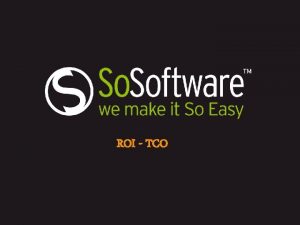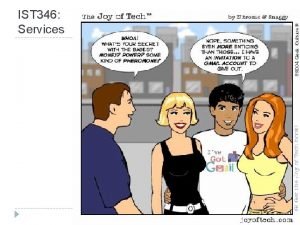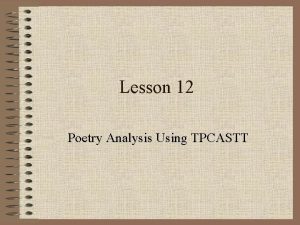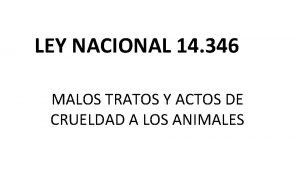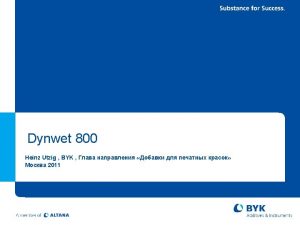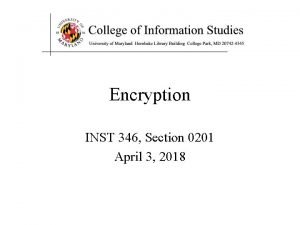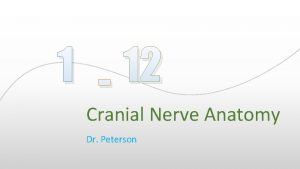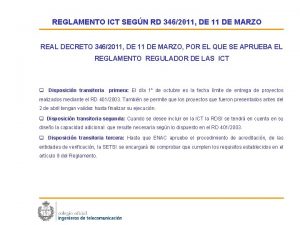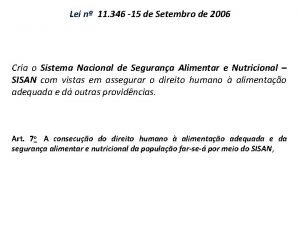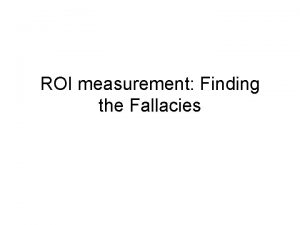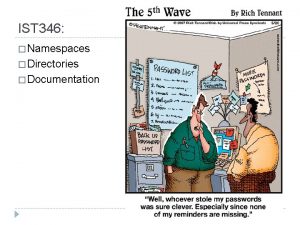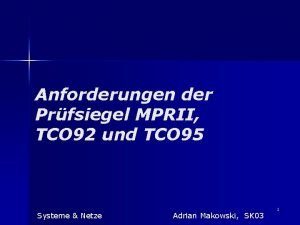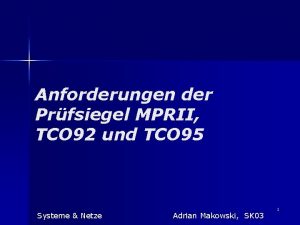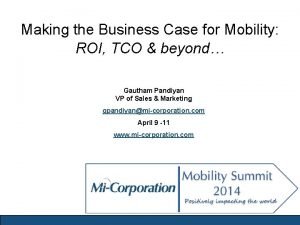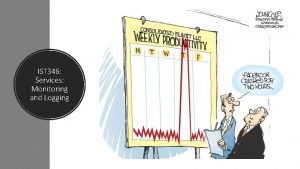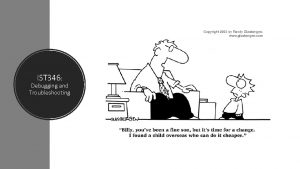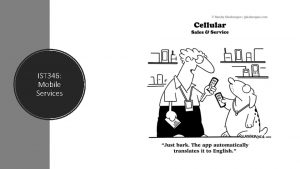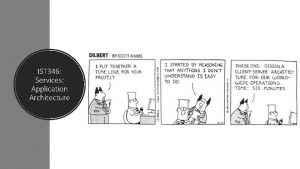IST 346 ROI TCO Todays Agenda Understand TCO














- Slides: 14

IST 346: � ROI � TCO

Today’s Agenda � Understand TCO � Learn to perform TCO calculations � Understand ROI � Learn to perform ROI calculations

TCO = “Total Cost of Ownership" �TCO a type of calculation or business concept designed to help managers assess the economic value of an investment through its cost. �In the IT world, your investment is usually a system (hardware/software) or a service. �TCO calculations consist of both direct and indirect costs � Direct Costs: Are directly accountable to the investment. Eg. Hardware, Software, Operation, and Admin. Costs � Indirect Costs: Are not directly accountable to the investment. Eg. End user operations (support), Downtime, Loss of Productivity

TCO In Action � TCO has demonstrated: � Approximately 30% of the total cost of owning an Workstation is the cost of the computer and software � The remaining 70% is support, downtime, and training. This is the 30/70 principle. � This a $2000 computer really costs $6, 666. 67 � (30% is $2000 of $6666. 67) � � TCO can be applied to almost any investment � Oftentimes we compare investments in term of which one has the lower TCO. This is known as a TCO analysis.

Example TCO Analysis – Open Source Software �Recent web articles have emphasized TCO as a key element in the Open-Source vs. proprietary software debate. �OSS delivers lower Direct costs over proprietary software (due to reduced licensing costs). � Seems obvious enough! �Several TCO studies claim OSS has higher indirect costs when compared to market-leading proprietary software. � How are they able to make this claim?

TCO Study By E-Week 4/26/2004 �Office 2003 vs. Open. Office. Org FN Manufacturing in Columbia, SC. 300 PC users. � Evaluating whether to switch from Office 97/2000 to Open. Office 1. 1. 1 or Office 2003. � �Conclusion: shops: Open. Office a good fit for small Open. Office = $0 in direct costs � Office 2003 = 300 x$200= $60, 000 in direct costs � Both products have associated indirect costs, and similar switching costs. � But will Open. Office have more than $60, 000 worth of indirect costs during its lifetime (3 years)? �

Example TCO Anlysis Study OSS and Indirect Costs � Sample TCO analysis of the Same Windows XP computer with Microsoft Office and Open. Office � Direct costs are green, Indirect costs are fuchsia XP w/ Office XP w/ Open. Office 2% 2% Hardware 27% 44% 52% 18% Software 26% 9% 18% 2% Operations User Ops Downtime Key Determining Factor: software cost savings > gain in user operating costs + cost of switching

Important Software Evaluation Considerations �Evaluate TCO numbers for yourself. Estimate your own direct costs, based on hard numbers. � Indirect costs can be very difficult to calculate. � �Don't Ignore the traditional software selection process: � Identify, Review, Compare, Analyze �Don't forget the cost of switching: Training Costs � Deployment Costs � Training and consistent deployment help reduce indirect costs. � Switching costs can be an enormous indirect cost. �

ROI = “Return on Investment” �ROI is a type of calculation designed to help managers assess the economic value of an investment through its potential �ROI = (gain-cost)/cost �Example gain=$7, 500 cost=$5, 000 ROI=50% �Positive ROI is good, negative is bad. �ROI is used in IT to help compare similar IT investments.

ROI Example: Selling Products on the Web � You work for a parts distributor. Currently you do not sell products on line. � A)A Recent TCO study has revealed it will cost $12, 000/year to begin selling products on the web. � If you would like a 25% ROI, what it the expected gain? � B) If another option is to partner with Amazon. com to sell your parts on line at a cost of $5, 000/year What is the expected gain for the same 25% ROI? Is it better? � C)If the marketing department claims that by spending $5, 000 next year on local advertising they can generate an additional $9000 in sales boost sales

ROI Example: Selling Products on the Web � A) . 25 = (gain – 12000)/12000 3000 = gain-12000 gain = 15, 000 � B). 25 = (gain – 5000)/5000 1250 = gain – 5000 gain = 6, 250 � C) ROI = (9000 -5000)/5000 ROI = 4000/5000 =. 8 � Option C has the highest ROI. � Option A and B have the same ROI but option B has a lower TCO so… � Option B is better than option A

Datacenter Virtualization (to-be) No Virtualization (as-is) � Hardware Costs? � Software Costs? � Training Costs? � SA Labor Costs? � Effect on Users or Downtime? � Others? Some people feel this is a no-brainer from a TCO/ROI. Is it? Just Google Datacenter virtualization TCO and read

Datacenter TCO and ROI Resoures � Whitepaper � http: //www. vmware. com/files/pdf/tco_roi_methdology. pdf � Calculators: � VMWare: � http: //www. vmware. com/files/elq. Now/elq. Redir. htm? ref=htt p: //www. vmware. com/go/calculator � Microsoft: � https: //roianalyst. alinean. com/msft/Auto. Login. do? d=3070 25591178580657

Questions?
